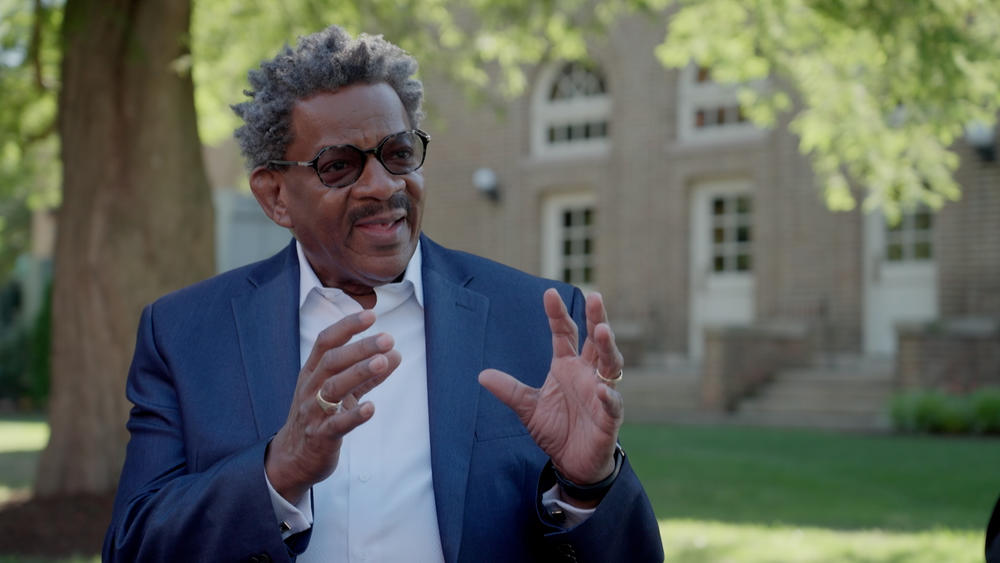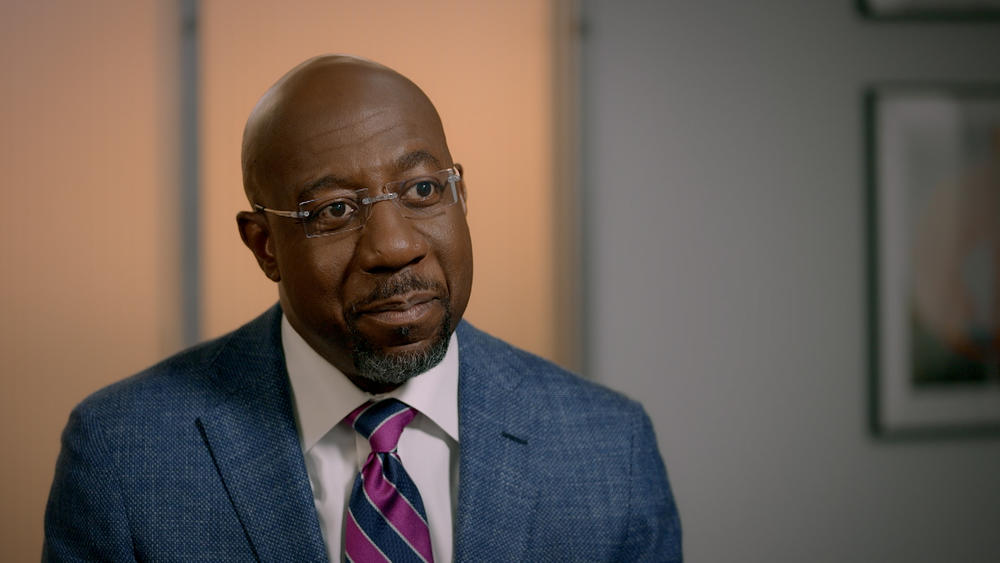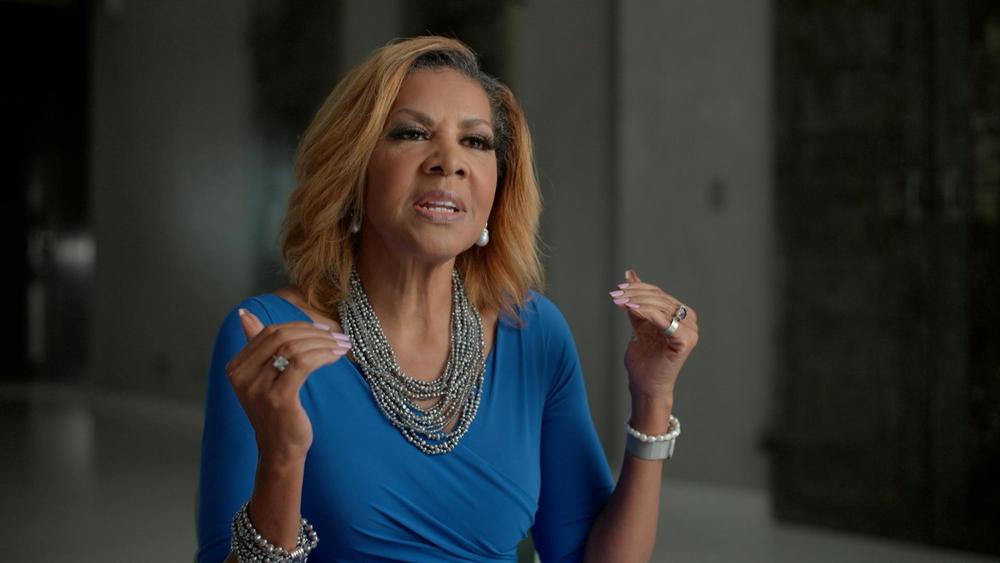Caption
GOSPEL, the latest history series from Henry Louis Gates, Jr., digs deep into the origin story of Black spirituality through sermon and song.
GOSPEL, the latest history series from Henry Louis Gates, Jr., digs deep into the origin story of Black spirituality through sermon and song.
Henry Louis Gates, Jr. makes the case in his new four-hour docuseries that Chicago is the home of Gospel music, and only minutes into it makes clear that it's because someone from Villa Rica, Georgia moved there.
The genre - the executive producer, host and writer explains - is intrisically tied to the history of Black migration and Black movement.
"Though many Southern transplants contributed to the rise of gospel," Gates says. "perhaps no one played a more pivotal role than a young musician named Thomas A. Dorsey, born in Georgia. Villa Rica, Georgia."
Dorsey left the city of less than 20,000 and established himself up North as a blues singer, but a visit to the National Baptist Convention left him torn between the juke joint and the church. The sanctuary won, but the prolific composer and songwriter brought the melody and "articulations" of his previous music of choice to over 1,000 songs. Arguably the best known being, "Precious Lord, Take My Hand."
Throughout Gospel, starting Feb. 12 at 9 p.m. on GPB-TV, Georgians not only help tell its story but play notable parts in it. Including...
Sallie Martin. "When we talk about the origins of gospel, usually it's Thomas Dorsey and nobody else," Fredara Hadley of The Julliard School points out. But it was fellow Villa Rica, Georgia singer Sallie Martin, also an astute businesswoman, who helped Dorsey take his compositions to a larger audience.
In a highlight of the first hour, vocalist Jekalyn Carr not only elaborates on why artists like the seminal Mahalia Jackson first met resistance by some in the church ("because it's not done their way, [they think] that it's not God"); but she gives Gates a riveting demonstration of varying approaches to gospel.
As Gospel moves to Detroit, it settles on the widely influential Rev. C.L. Franklin; father of the vocal power widely considered The Queen of Soul, Aretha Franklin.

Rev. Dr. Dwight D. Andrews, a professor at Emory University, sits down with Henry Louis Gates, Jr. to discuss GOSPEL.
"i listen to C.L. Franklin still. to this very day," Emory University's composer, musician and educator Rev. Dr. Dwight D. Andrews points out. "Because of his skill at the preaching exercise."
In addition, "[Franklin] helps to bridge the future of gospel music, [and] also the future of the civil rights movement, literally at his dinner table," adds another contributor.
Case in point: In June 1963 Franklin organized The Walk To Freedom, where a reported 100,00 people marched up Woodward Avenue to hear a keynote speech by Atlanta native, Martin Luther King, Jr. . This is when many believe he first started formulating the address he is best known for: I Have A Dream.

Senator Reverend Raphael Warnock (GA-D) and pastor of Atlanta's Ebenezer Baptist Church, sits down for an interview for GOSPEL.
"The I Have A Dream speech is a sermon," declares Georgia's Rev. Sen. Raphael Warnock. "It is informed by the ethics and the values of the church, and that old Southern Black Baptist tradition that gave birth to him."
In the third hour of the four-part series, concluding Feb. 13 at 9 p.m. on GPB-TV, Gospel moves to its community wrestling with being "comfortable with the kingdom of God being a brand." Here, the success of Dallas, Texan Bishop T. D. Jakes' Woman Thou Art Loosed conference in Atlanta is help up as an example.
As while thousands of attendees clearly find value in it, Emory University's Maria Frederick also asserts that it could be considered "commodification of womens' pain and womens' trauma."

Take the Message Everywhere: Teresa Hairston, founder and publisher of Gospel Today Magazine, is interviewed for GOSPEL.
At the same time, the publisher of Atlanta-based Gospel Today's, Teresa Hairston, frequently appears in Gospel. And it concludes on a hopeful note, highlighting Atlanta's Maverick Music for taking the genre in yet another, multicultural direction.
Affirming, again, that gospel has long had and continues to inhabit many iterations.
Gates summarizes: "Gospel is a prayer. It is a chant. It is a praise song. It is our heart's cry to God rendered collectively and sublimely in lyrics and songs."
Want more GOSPEL? You can stream GOSPEL now on GPB Passport. (Don't have GPB Passport? Find out more about Passport HERE).
Elevation Worship & Maverick City - "Jireh"